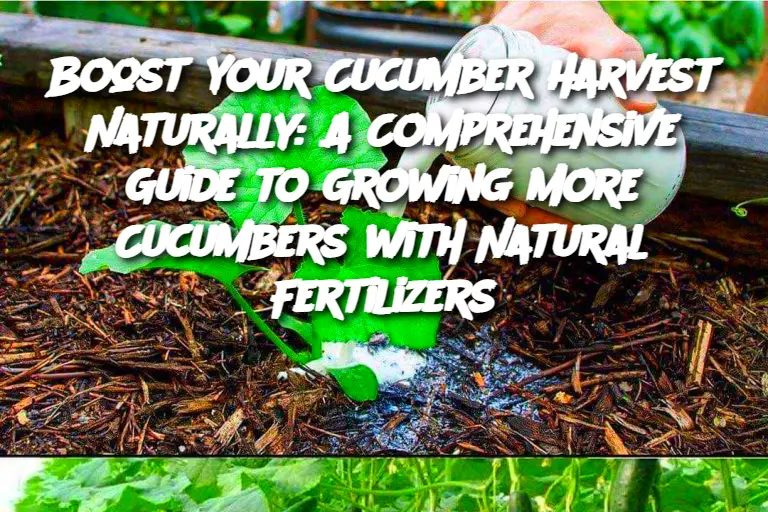ADVERTISEMENT
Introduction
Cucumbers are a favorite addition to any garden, not only for their crisp texture and refreshing taste but also for their versatility in the kitchen. Whether you are a seasoned gardener or a beginner, increasing your cucumber yield can be a challenge, especially when dealing with limited space or less-than-ideal growing conditions. One of the best ways to maximize your cucumber harvest is by using natural fertilizers that nourish the soil and enhance plant growth. In this guide, we'll explore how you can double the yield of your cucumbers using organic, eco-friendly fertilizers and gardening techniques.
Ingredients:
Organic Compost: Rich in nutrients, compost improves soil structure and encourages strong plant growth.
Fish Emulsion: A great source of nitrogen, phosphorus, and potassium, which are essential for healthy cucumber plants.
Worm Castings: Packed with essential micronutrients, worm castings are a natural way to enhance soil fertility.
Epsom Salt: Contains magnesium and sulfur, both crucial for cucumber plants to thrive.
Bone Meal: High in phosphorus, bone meal promotes robust root development.
Seaweed Extract: Packed with trace minerals that encourage healthy plant growth and disease resistance.
Mulch: Helps retain moisture, suppress weeds, and enrich soil as it breaks down.
Preparation:
Prepare Your Soil: Start by enriching your garden soil with a layer of organic compost. This creates a nutrient-rich base for your cucumbers to grow. Make sure to till the soil to a depth of about 12 inches to allow root systems to spread freely.
Fertilizing Before Planting: Before planting your cucumber seeds or seedlings, mix bone meal and a small amount of fish emulsion into the soil. These fertilizers promote strong root growth and early plant development.
Regular Fertilizing: Once your cucumber plants are established, you can continue to feed them with natural fertilizers like worm castings and seaweed extract. A monthly application of these fertilizers will keep your plants healthy and productive.
Mulch for Moisture Retention: Apply a layer of mulch around the base of your cucumber plants to help retain moisture, reduce weed growth, and protect the roots from extreme temperatures.
Watering: Cucumbers thrive on consistent moisture, so water your plants regularly, especially during dry periods. Using a drip irrigation system can help deliver water directly to the root zone, ensuring even moisture distribution.
Presentation and Storage Tips:
Harvesting: Cucumbers are best harvested when they are firm, green, and the size that suits your preference. Overripe cucumbers tend to become bitter, so check your plants daily.
Storage: Store cucumbers in the refrigerator, preferably in a vegetable drawer. They last up to a week if fresh, but you can also pickle them for long-term storage. If you have an abundant harvest, consider slicing or dicing your cucumbers before freezing them for future use.
Variants:
ADVERTISEMENT
